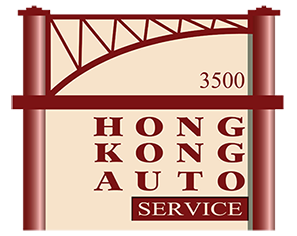5 Simple Things to Consider about New Vs. Old Car
One of the most annoying things about car ownership is breakdowns. One day it’s a minor repair, a week later it’s another repair, and the next month the car takes the big vacation and decides it needs some major work.
Not only is being without a car frustrating and a huge hassle, but let’s face it, repairs can be expensive!
You’ve probably considered simply trading in your old car for a new one. A shiny, clean-smelling new car is just what you need, right? Then you see the monthly payments and WOW! Your old car is sure looking good again!
Repairing your old car or buying a new one is a tricky dilemma that can be confusing to nearly everyone.
Let’s crunch the numbers so you can make a smart financial decision.
The Variables
We understand that “repairs” can mean a great many things and the prices can vary tremendously. Are we talking about an oil pressure sensor or an oil pump replacement?
How often you drive or rely on this car is also something you should consider. Do you rely on (need) this car to take the kids to school and get to work every day? Do you use this car as your mobile workstation? Or do you use it just to run errands and go on weekend trips?
Consider these questions, as well as the financial factors, and your smart choice will become clear.
The Financial Facts
First, you should estimate the value of your vehicle. Don’t worry about how much any needed repairs are right now, let’s take the standard Kelley Blue Book and find the value of your vehicle. Be as honest as possible to get the most accurate value.
For the sake of this article, let’s say that Kelley says your vehicle is worth $6,000. If your current repair bill is $1,500 and you paid to repair the vehicle, your car is now worth $7,500.
Keep in mind that this isn’t true in every case, but you are simply trying to find a number to work with.
This means that if you paid to repair your vehicle, and you sold it right away, you would recoup the money you just put into it.
Your trusted mechanic at Hong Kong Auto Service can help you determine if the repairs would actually increase the value of your vehicle.
For example, if the tires are bald, anyone looking to buy your vehicle is first going to consider how much a new set of tires is going to set them back. In that instance, spending money on tires or brakes is a very worthwhile investment, whether you are selling or keeping your ride.
If your repair, however, is for something not very appealing to a buyer (new main bearings, for example), you will most likely want to sell the vehicle as-is, take that cash plus the $1,500 you would have put into the vehicle, and put it down on a new one.
Kelley Blue Book’s rule of thumb is a good one: If the cost of repairs is more than the value of the vehicle or one year’s worth of monthly payments on another vehicle, it is time to replace the vehicle.
If your vehicle is more than 10 years old and has close to or more than 200,000 miles on it, you will seriously want to lean towards getting a new car.
Car Payments
If your vehicle needs several repairs or, for example, you know it needs a new muffler right now and it will need new tires later this year, you might want to think about spending the money you will be making on car payments on putting it into your old car.
If you consider that an average car payment is in the $400-$500 a month range, you could spend that on your vehicle instead of purchasing a new car.
This is a good choice if you have a newer vehicle that you have simply neglected to do repairs or maintenance, but the car is still in excellent shape otherwise.
One More Option
One last option is to buy a “new to you” used car.
Let’s say your vehicle is a 2006 with close to 200,000 miles. Perhaps you’ve spent quite a bit of cash on it in the past year and you really rely on this vehicle.
You could sell the car and put that money down on a lightly used vehicle. Most dealerships have a terrific selection of leased vehicles that are only 2 or 3 years old, have less than 50,000 miles, and cost a fraction of what a new car does.
Technically, it’s not brand new, but many previously owned vehicles come with the original warranty or an extended warranty so you will have at least some protection if the car has problems soon after purchase.
Always ask about any warranty that the vehicle may have or that you could purchase.
The Smart Choice is Probably Clear
If you still have problems and can’t decide what to do, the friendly advisors and mechanics at Hong Kong Auto Service will be happy to assist you in any way possible.
Whether you’ve decided to repair your old vehicle, get a new one, or get a lightly used car, we are here to help.
You don’t need to return your new car or SUV to the dealer for maintenance. Hong Kong Auto Service can take care of all your maintenance needs. We will be happy to inspect your used vehicle and let you know about its overall condition and, of course, we are here to do fast, quality repairs on your old car, should you decide to keep it.
Don’t stress over the decision to keep or replace your vehicle. Hong Kong Auto Service will be here to help you, regardless of your decision.
